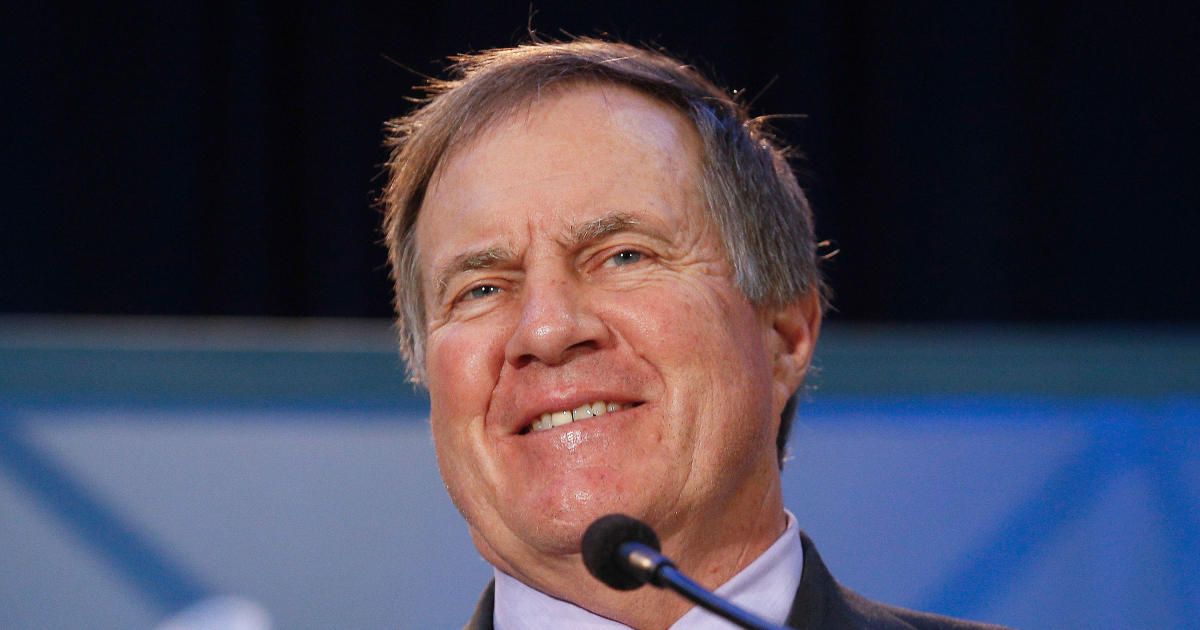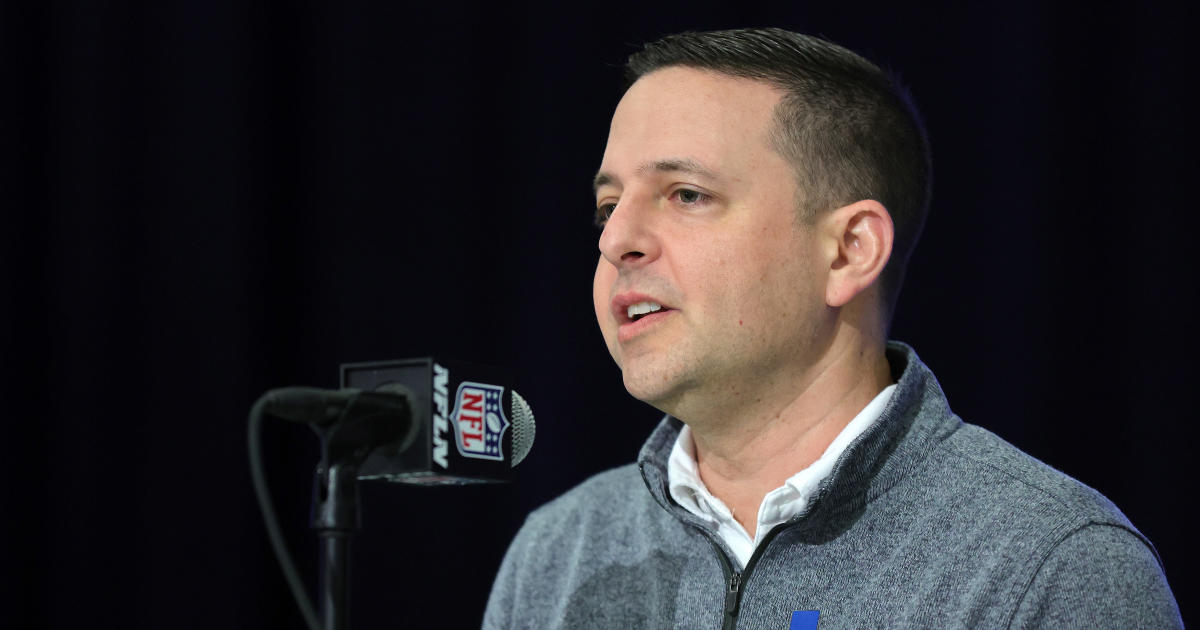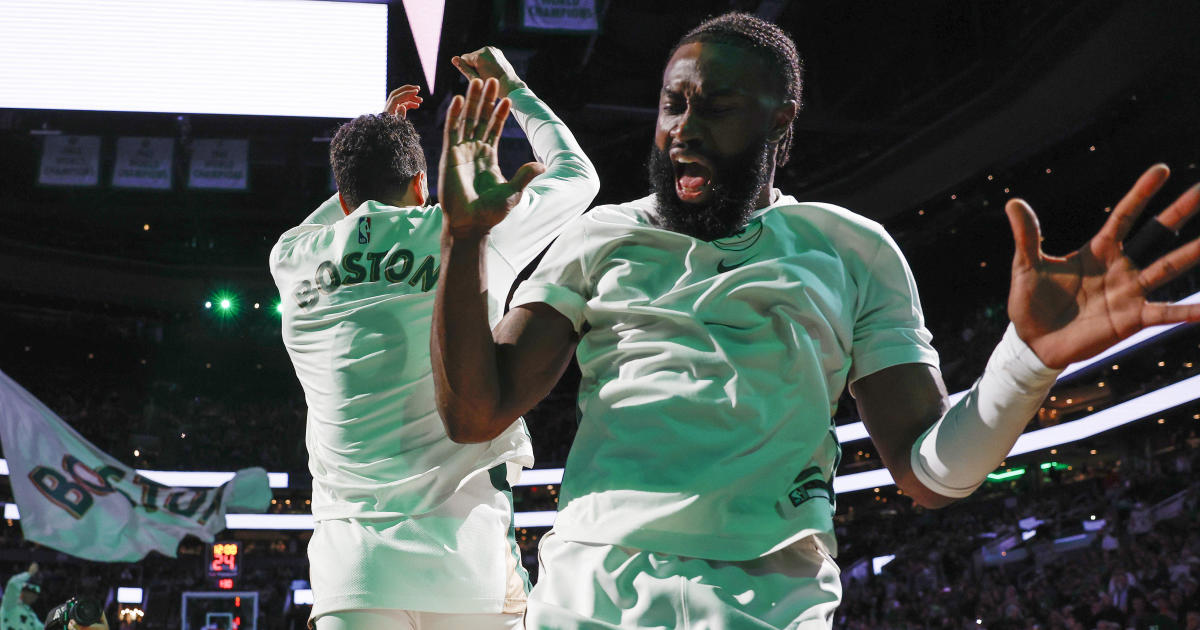Why Do Wide Receivers Make So Much Dang Money?
By Matt Dolloff, CBS Boston
BOSTON (CBS) -- Antonio Brown just broke the bank, but did he also break the Pittsburgh Steelers' Super Bowl chances?
Brown just became the highest-paid wide receiver in the National Football League after agreeing to a four-year extension worth $68 million, which includes a restructure for the 2017 season. CBS Sports' Jason La Canfora tweeted on Monday that the next five years will pay Brown close to $73 million, which inches him past the Falcons' Julio Jones ($71.5 million) for the richest total contract ever given to a wide receiver.
In the context of the NFL's hierarchy of receivers, you could certainly argue that Brown deserves to make the most money. He has emerged as one of the most dynamic receiving threats in the league in recent years and was due for a significant pay raise. There's no knocking Brown or his agent Drew Rosenhaus for pursuing the biggest contract possible.
But Brown's deal begs a broader question across the landscape of the NFL ... why are receivers paid so much?
The question deserves to be asked because, well, high-priced wide receivers don't necessarily translate to Super Bowl championships. They can be highly productive, sure, but they can also take away from other areas of teams that may be more important. Even if Julio Jones' incredible fourth-quarter catch in Super Bowl LI helped seal the win for the Atlanta Falcons like it should have, he still would have done so as only the sixth-highest-paid wideout in the league in terms of base salary.
As far as Lombardi Trophies, paying receivers at the top of the league has simply not paid off.
Yes, there is evidence to support this. Out of the past 15 Super Bowl champions, going back to the 2002 Tampa Bay Buccaneers, precisely zero had a wide receiver who was paid one of the top-5 base salaries in the league. Six have had a receiver rank between sixth and 10th in salary, but only two since the 2008 season. The last team to do so was the 2015 Broncos, who had Emmanuel Sanders as the 10th-highest-paid receiver in the league at a mere $4.85 million.
Here's a handy chart to show you how far Super Bowl champions have extended themselves for wide receivers in the past 15 years:
| Season | Team | Player | Base Salary | NFL rank |
|---|---|---|---|---|
| 2015 | Broncos | Emmanuel Sanders | $4.85 million | 10th |
| 2012 | Ravens | Anquan Boldin | $6 million | 7th |
| 2008 | Steelers | Hines Ward | $4.7 million | 6th |
| 2007 | Giants | Plaxico Burress | $3.295 million | 10th |
| 2006 | Colts | Marvin Harrison | $4 million | 6th |
| 2002 | Buccaneers | Keyshawn Johnson | $1.5 million | 9th |
(Worth noting: The 2013 Seahawks did have Sidney Rice as the No. 2 highest-salaried receiver at $8.5 million, but Rice was on IR by the time they made the Super Bowl.)
Those teams all had at least one of two things: an elite quarterback or an elite defense. Of course, high-end quarterbacks are always worth the highest salaries in the league - but in terms of on-field value, there's no way that any elite receiver should be able to approach the numbers of an elite signal-caller. Even the best receivers in the game get targeted about 10-15 times a game; they simply don't make a major impact on enough plays over the course of a game to justify their grossly inflated salaries.
By contrast, the 2016 Patriots' highest-salaried receiver was Julian Edelman at $2.5 million. The 2014 Patriots paid Danny Amendola $3 million. The 2011 Giants paid Mario Manningham $1.4 million. The 2010 Packers paid Greg Jennings $1.85 million. You get the picture.
Brown will still make a silly $910,000 salary in 2017, so the Steelers won't have a chance to buck the trend until 2018. The Cowboys' Dez Bryant, who will have the league's highest salary in 2017 at $13 million, has a chance - but that's because the Cowboys also have a talented and inexpensive young quarterback throwing him the football in Dak Prescott, and a very good defense on the other side of the coin.
Elsewhere? Don't bet on the Falcons (Julio Jones, $11 million) making it back to the Super Bowl a year after their devastating collapse. The Cardinals (Larry Fitzgerald, $11 million), Bengals (A.J. Green, $10.3 million), and Chiefs (Jeremy Maclin, $9.75 million) don't look like safe bets, either. A year from now, it's quite possible that we're having this same conversation.
The Patriots, of course, can get away with a lot of things that other teams cannot, with Tom Brady playing at such an extremely high level and taking less money than he's worth in the process. When you have an elite quarterback and/or an elite defense, you can get away with paying less for receivers. Not every team in the league has this luxury. But it's still a curious phenomenon to see receiver salaries ballooning the way they have in recent years, with a history of minimal on-field results for the team.
So why exactly do receivers earn among the highest salaries in the league? Is it because they're the flashiest? Because they're the best for TV highlights - and in turn better for business than, say, an elite safety or middle linebacker? Whatever the reason for receivers being paid so much, it's not really because they've led directly to Super Bowl titles.
The 2018-21 versions of the Steelers will look to undo a lot of troubling recent history for teams with elite receivers at the top of their salary caps. They better hope they draft well on defense - and if Ben Roethlisberger continues to decline, they may also need to find their next quarterback. There's no doubt that Brown is a phenomenal talent that deserves to be paid more than arguably any other receiver, but if the Steelers hoist the Lombardi Trophy in the next five years, it's likely that Brown will not be the main reason why.
Matt Dolloff is a writer for CBSBostonSports.com. Any opinions expressed do not necessarily reflect that of CBS or 98.5 The Sports Hub. Have a news tip or comment for Matt? Follow him on Twitter @mattdolloff and email him at mdolloff@985thesportshub.com.
All salary figures according to Spotrac.



